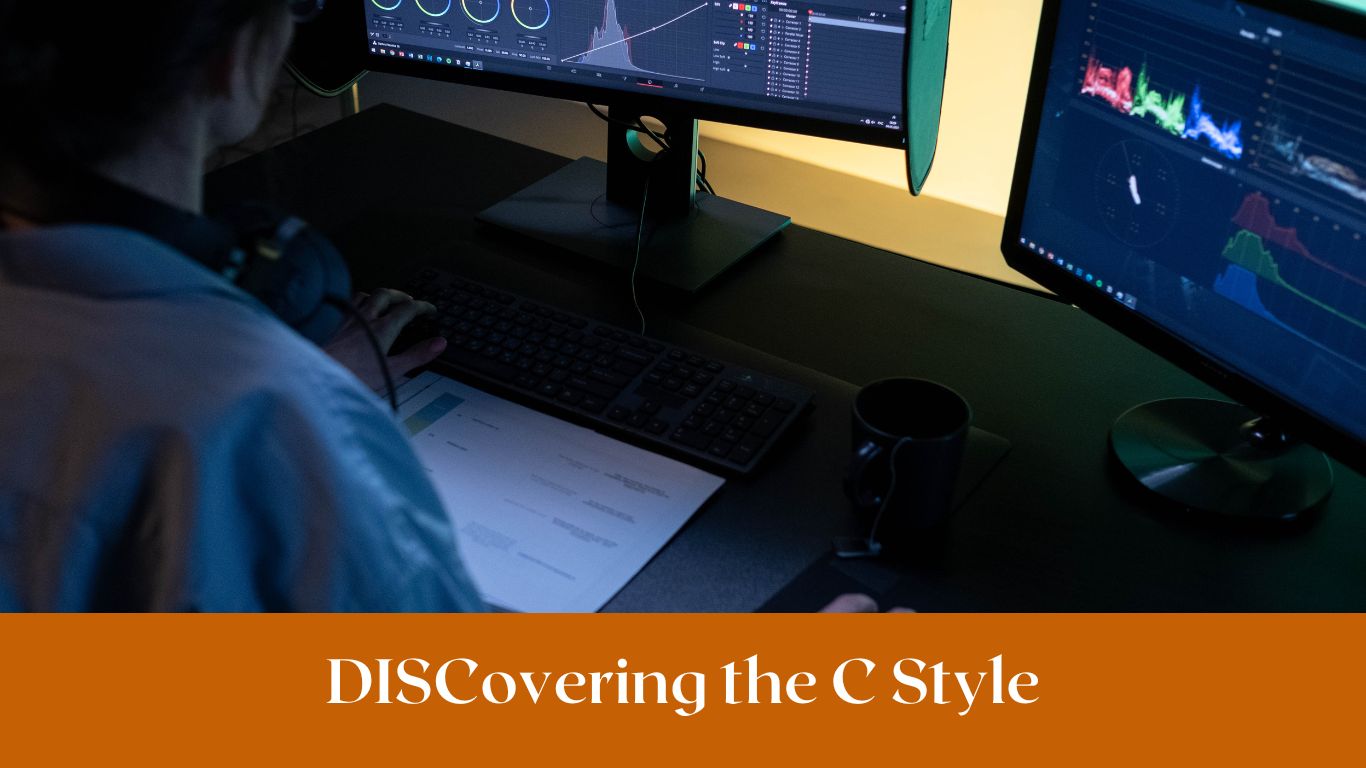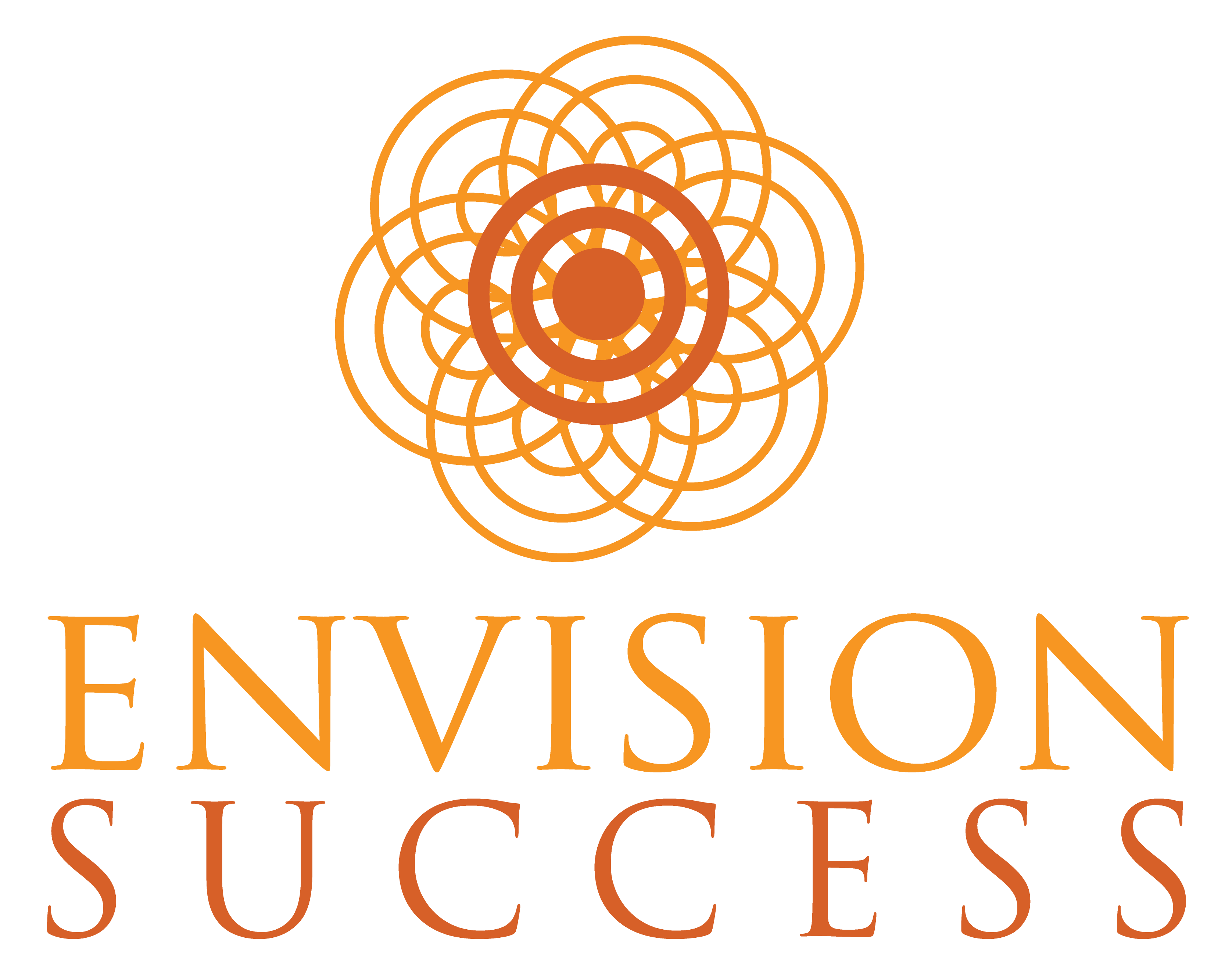People strong in the DISC C Style ("C Personality") are often seen as analytical, focused, and concerned with doing things the RIGHT way. Without the guidance of the C Personality style, we risk not reaching our destination accurately, safely, or on time!

We're concluding our DISCovery of the four primary DISC styles of communication as we embrace the DISC C Style, or C Personality.
These individuals contribute their Cautiousness, Competence, Correctness, and Consistency to every situation they encounter. They will focus on doing things the RIGHT way and will look at the goal from a long-term perspective.
Just as we DISCovered with the D Style, I Style, and S Style "personalities," keep in mind that a straightforward way to identify your personality style or that of others is by examining priority perspectives—specifically, task-oriented versus people-oriented tendencies.
The C style typically prioritizes tasks over relationships.
Another indicator is the pace or speed at which a person approaches tasks. Because these individuals tend to be more reserved, they often process information internally and at a slower, more deliberate pace.
Our C Styles may also be described as Conscientious.
Using the idiom "Ready, Aim, Fire," the C style might find themselves stuck at "Aim," grappling with the decision to "Fire." They tend to strive for correctness, setting high standards for themselves and others, often leaning toward perfectionism.
Share with a friend!
People who are high in the DISC C Style may have these distinguishing characteristics:
•They often worry.
•They value quality.
•They prefer clear instructions.
•They dislike clutter and seek organization.
•They think in terms of "why" questions.
•They don’t like to be rushed.
•They appreciate reassurance.
•They desire acknowledgment for their good work
The DISC C Style helps make things accurate, on-time, and safe for us all.
Dr. Robert A Rohm, Ph.D. writes in his book, "Who Do You Think You Are…Anyway!" –describes how these detail-oriented individuals rank with regard to personal and work relationships with others strong in different DISC styles:
C Styles with others: Personal level
- C with D = VERY POOR
- C with I = SLIGHTLY OVER POOR
- C with S = BEST
- C WITH C = BEST
C Styles with others: Work Level
- C with D = FAIR
- C with I = GOOD
- C with S = BEST
- C with C = GOOD
For the C style, a good day means being orderly, while a bad day can lead to behaviors that seem compulsive; they may come across as logical but can also be critical; correct but inflexible; precise yet picky; cautious but fearful.
Strengths and assets can quickly become weaknesses and liabilities when individuals are caught off-guard and unprepared for unexpected circumstances.
The ‘Secret Tip” for a strong DISC C is: ‘People don’t CARE how much you know until they KNOW how much you care. Learn that people skills are as important as technical skills’.
In good company...
If you find yourself leaning towards this style, you’ll be in the company of notable figures like Steve Jobs, Warren Buffet, Alfred Hitchcock, Leonardo DiCaprio, and Eric Clapton. You might be employed as an accountant, architect, physician, professor, engineer or a pilot.
For those strong in the DISC C Style, they tend to strive for correctness, setting high standards for themselves and others, often leaning toward perfectionism.”
In this blog series, we've explored the personality styles, highlighting the uniqueness and importance of everyone. By understanding key traits—such as pace and priority we can better appreciate how each type navigates their relationships and tasks. We've also discussed the potential challenges EVERYONE faces on tough days, where strengths can morph into weaknesses when the unexpectedness of life arises. Recognizing these dynamics not only enhances our interactions with each other, but also encourages us to embrace the unique contributions everyone brings to any team.
There is so much more to explore with the DISC Model of Human Behavior and its resources.
Gaining a deeper understanding of ourselves and others—our strengths and weaknesses, as well as our unique communication styles—enhances every relationship we have, whether in professional or personal contexts.
As the old saying goes, ‘Teamwork makes the dream work!’
Contact Us to explore proven and custom options for team assessments and strategic development.
In closing, some key points to keep in mind when identifying both our own and others’ personality styles are:
- There are differences in the intensity within each style
- No one style is ‘better’ or ‘lesser than’ another style
- We are unique blends of each personality style
- YOU are the one that can adapt your style to that of another to improve communication
- Each of us inherently believes ‘our style’ is THE BEST style
- To progress forward in life and work, we need each style to effectively collaborate together
- Anyone can be a ‘leader’, no matter which style
- As Dr. Rohm cites, ‘The first step in maturity is recognizing the strengths and weaknesses of our own personality style.’
Learn more here about your own Primary Style and Unique DISC Combination! Download the free sample assessment.
Share with a friend!
As a reminder...
DISC should be used in a positive way to encourage a person to be his or her best, not as a way to “label” someone.
DISC is a practical and widely used assessment tool that has been employed in various organizations worldwide, from Fortune 500 companies to nonprofits and small businesses, to individuals within their personal lives and relationships.
The letters D, I, S, and C describe the four intrinsic drives that manifest in behavioral patterns. This makes it a less complicated, and more memorable, model for application than some of the other assessments on the market.
- One of the best ways to gain a better understanding of the model is to take the assessment yourself. It only takes about 10-15 minutes to complete.
In this series:
We're exploring how understanding yourself and others reduces stress in your life... How to better understand others and predict potential conflicts as you develop better relationships... How to use the process in interviews, staff evaluations, team structuring and building, and more! And how this affects decisions to invest in people, or in "human capital."
